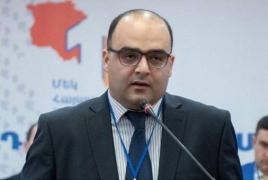
Energy expert Vahe Davtyan wrote on Facebook that the process will not stop with the Electric Networks of Armenia (HEC). According to him, the “coup plan” narrative serves deeper purposes than it may initially appear.
The published “plan” names Gazprom Armenia and the South Caucasus Railway as actors in the “prevented coup.” Davtyan suggests this could lay the groundwork for nationalizing these companies.
“In the case of the railway, nationalization could be easier, since the infrastructure belongs to the state (though the rolling stock is fully owned by the company),” he said.
However, with Gazprom, such a scenario could trigger serious risks to Armenia’s energy security and revive political discourse around importing natural gas from Azerbaijan.
Davtyan added that a recent statement by a representative of the Public Services Regulatory Commission about possible tariff increases due to a new nuclear power plant should not be seen as casual. He argues it reflects the government’s consumerist and non-strategic attitude toward nuclear energy.
“Critical infrastructures—electric networks, the nuclear plant, gas transport systems, and the railway—are now targeted, all of which are pillars of national security,” he concluded.
Prime Minister Nikol Pashinyan recently stated that the plan to nationalize ENA is ready. Earlier, he noted a bill on ENA’s nationalization was already in circulation in parliament. He argued the church was merely a smokescreen for the soon-to-be-former owners of ENA, which had pushed the country toward an energy crisis through its operations.
On June 18, the Public Services Regulatory Commission fined the Electric Networks of Armenia 10 million drams.

